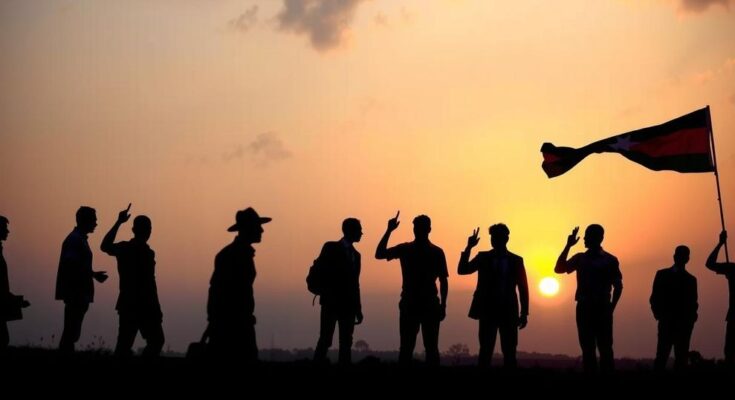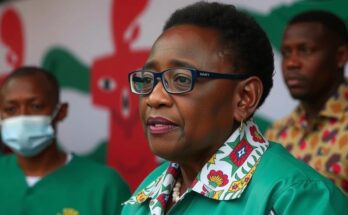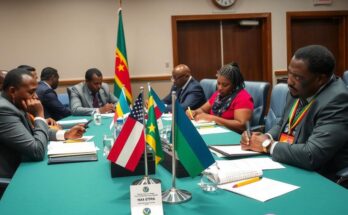During the 79th session of the UNGA, Suriname’s President Chandrikapersad Santokhi urged the international community to offer more assistance to Haiti, emphasizing the importance of sustained support amidst ongoing instability. He highlighted CARICOM’s role in facilitating a transitional government and called for a coherent, transparent approach to aid Haiti. The address also touched on the need to lift the US embargo on Cuba and the necessity for support for small nations in the global economy.
On Wednesday, Suriname positioned itself at the United Nations General Assembly (UNGA) advocating for enhanced international assistance for Haiti amidst escalating challenges and increasing “Haiti fatigue.” The President of Suriname, Chandrikapersad “Chan” Santokhi, emphasized that the global community must not abandon Haiti during its critical time of need. He commended the Caribbean Community (CARICOM) for its ongoing efforts to instigate stability within Haiti, specifically highlighting the establishment of a transitional government and a roadmap for forthcoming elections. President Santokhi expressed concerns regarding the persistent upheaval in Haiti since the assassination of President Jovenel Moise in July 2021, noting the rampant actions of criminal organizations in undermining interim governance. The UN Security Council’s recent endorsement of a Kenyan-led Multinational Security Support (MSS) Mission offers a glimmer of hope, yet President Santokhi articulated a strong plea for continued and increased financial and technological support from the international community. He asserted, “Haiti fatigue is not an option. We urge the international community to financially and technologically support Haiti on its path forward,” affirming Suriname’s readiness to contribute to the MSS. Additionally, President Santokhi expanded his address to include an appeal for the cessation of the protracted trade embargo the United States has imposed on Cuba, calling for a more collaborative global approach to pressing issues such as climate change, social inequality, and equitable access to essential services like healthcare and education. He underscored the importance of support for small nations in adapting to the digital economy, noting that Suriname is striving to recover from a challenging economic landscape while undertaking vital reform measures. Santokhi highlighted that new financial paradigms implemented by international banks are often misaligned with the realities faced by small nations, posing barriers to inclusive development.
The article discusses President Santokhi’s appeal to the international community during the 79th session of the UNGA, particularly regarding the situation in Haiti, where ongoing instability has persisted since the assassination of its president in 2021. It outlines the actions taken by CARICOM and the UN in attempts to stabilize Haiti as well as Suriname’s position on international cooperation and support for humanitarian and economic reforms, while also touching upon broader themes of global cooperation in addressing issues affecting small nations like Suriname.
In conclusion, President Santokhi of Suriname has passionately called for the global community to reject ‘Haiti fatigue’ and to provide increased support for Haiti as it navigates significant turmoil. Additionally, he has shed light on the broader need for international collaboration on economic issues faced by smaller nations in a global landscape marked by inequality. Suriname’s leadership reflects a commitment to both regional stability in the Caribbean and to advocating for systemic changes in global financial practices to better support developing nations.
Original Source: caribbean.loopnews.com




